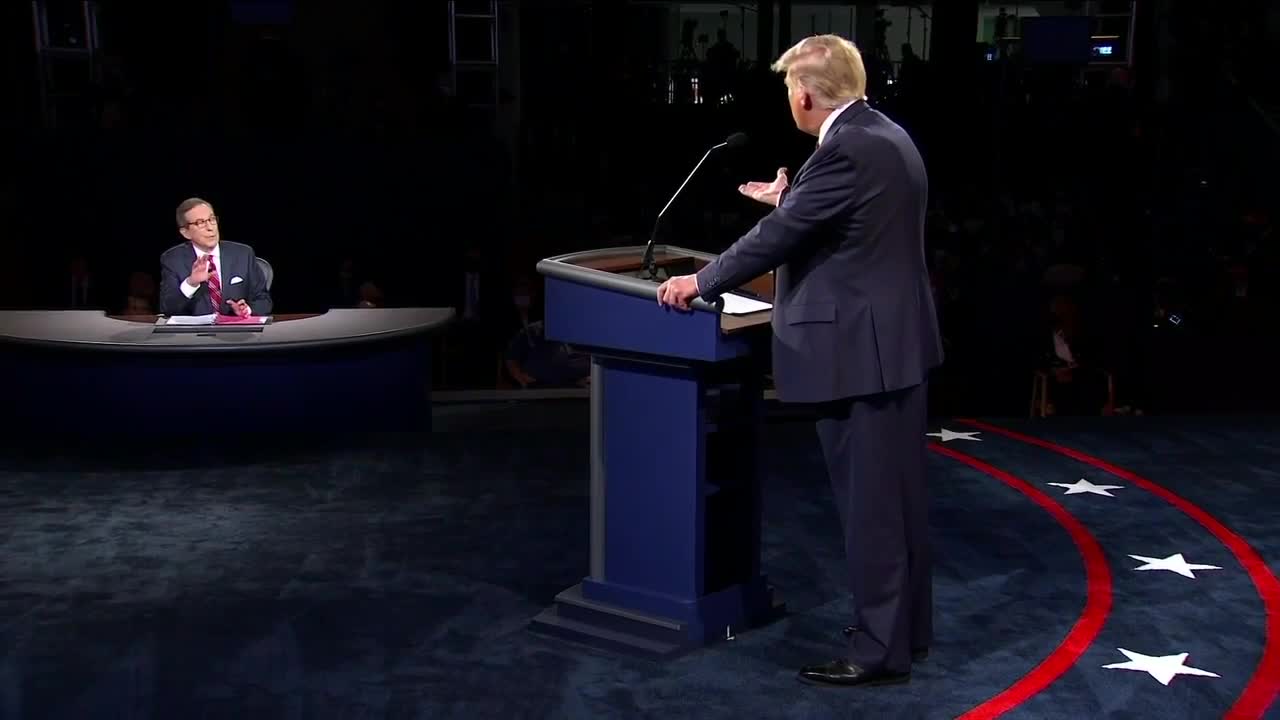We first reported on this story back in early January when Republican National Committee (RNC) Chair Ronna McDaniel sent a letter to the Commission on Presidential Debates (CPD) demanding changes or risk a boycott from the RNC in 2024. Since then, when McDaniel put the item on the RNC agenda to be discussed in April, we now have further development.
The RNC has voted unanimously to withdraw from debates organized by the CPD during the 2024 presidential election. This does not mean Republican candidates will not participate in debates, but it means they will not participate in debates organized by the CPD.
Whether the RNC can legally bar the eventual 2024 GOP candidate from a CPD debate stage remains to be seen, but the point is being made:
The RNC voted unanimously Thursday to withdraw from the primary organizer of general-election presidential debates, calling the CPD “biased” and unwilling to “serve the interest of the American people.”
“Debates are an important part of the democratic process, and the RNC is committed to free and fair debates,” RNC Chair Ronna McDaniel said in a statement. “The Commission on Presidential Debates is biased and has refused to enact simple and commonsense reforms to help ensure fair debates including hosting debates before voting begins and selecting moderators who have never worked for candidates on the debate stage.”
McDaniel emphasized that the RNC would not be withdrawing from debates altogether, but only those hosted by the commission. It is unclear what alternative method will be pursued by the RNC, though the statement noted it will explore “other avenues for candidates to have a free and fair forum for all Americans.” The commission has hosted presidential debates for over three decades.
The 2016 and 2020 presidential debates were arguably bad. Part of the problem lies with moderators who feel a duty to “fact check” on the fly or try to prevent certain things from being said without rebuttal. Rather than act as dispassionate observers, moderators tend to inject their own agenda and bias into the debate, and that bias always flows toward the direction of helping the Democratic candidate.
The moderator should never be part of the story at the end of the debate. It would be better to have a random panel, hidden from view, asking questions, give candidates a certain time, then cut their mic and move on. No arguing with moderators, no back-and-forth over whether something has been “debunked” by some random newspaper fact check writer in Tampa, just a straight-up debate of the issues with the candidates doing 99% of the talking. If a candidate chooses to use their time to talk about something else or answer a question not asked, that’s up to them, the viewer can decide.
It’s not clear what the RNC has in store as a suggested replacement, but debates between presidential candidates did take place before the agreed-upon Commission on Presidential Debates was established back in 1987. The other aspect of having a debate commission, controlled by the establishment of both major parties, has been to ensure the exclusion of third-party candidates from the national conversation.
As one commenter put it, “don’t play games where the rules are designed to make you lose.” The RNC has finally realized this.
The ire against the CPD, and biased moderators, goes all the way back to 2012 when Candy Crowley “fact-checked” Mitt Romeny live on the debate stage, helping Barack Obama. Turns out Crowley was wrong and Romney was right, but that didn’t help the millions who watched and saw Romney slapped down on national television.
Too often, debate moderators use the event as a platform to advance their careers and gain notoriety by “taking on” a presidential candidate at the most high-stakes moment. This practice needs to end, and it needed to end a long time ago.
The future of this story is yet to be written and we won’t know until 2024 rolls around how this will play out for the eventual GOP nominee. The RNC statement says they’re “going to find newer, better debate platforms” to showcase candidates and give voters a better experience.
With the advent of streaming and the availability of venues and ways to produce a televised debate, a single commission controlling every presidential debate no longer seems like a good way for a free and open democracy to operate.
Donate Now to Support Election Central
- Help defend independent journalism
- Directly support this website and our efforts
